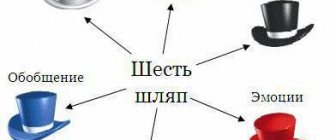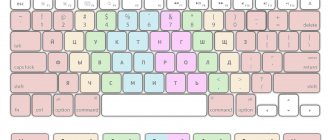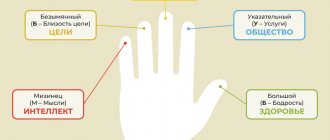In recent decades, social time has outpaced natural time. This means that during the life of one generation, he has to constantly learn, adapt to a dynamically changing world (its social aspect), become more perfect, faster, smarter, and keep up with market demands. Social time begins to flow faster, although the technosphere has simplified life and freed up a lot of time, there is always not enough of it, especially at work. There is hardly anyone who is not familiar with such cases.
There can be many reasons for the shortage: wasting time on conversations, spending time on the Internet, the hope that part of the work can be assigned to employees, work is not a wolf, lack of motivation. We will present a dozen techniques and recommendations, the implementation of which will relieve any person of the question: “How to learn to work faster and more efficiently?”
Priority
Before starting any activity, decide on your priorities: arrange the planned events in order of their importance, starting with the urgent and more significant. You should learn to divide or classify tasks into urgent ones, which must be completed within a specified time frame, and important ones, which must be completed, but are not so limited by the time frame.
Important may be not only those tasks set by a higher-level manager, but also those that directly affect other employees, forcing them to stand idle. As an example: in furniture production, first of all, you should take on cutting the material, so that everyone who will work with it will not be idle, and then - on other work if you have several operations assigned to you.
Concentrate
The goal determines the return you want to receive. The concentration zone determines the activities that are worth spending time on. The goal is the result. The zone of concentration is the path. A goal points to the future you intend to achieve. The concentration zone connects you to the present. In the field of sales, the goal is formulated, for example, the desired income or a certain number of new customers. In production - the amount of cost reduction. Meanwhile, areas of focus in sales may include proactive communication with potential clients, and in manufacturing, areas worth exploring to reduce costs. Of course, these two approaches are not mutually exclusive. You can have both a goal and a zone of concentration. Moreover, some will even insist that both are necessary, since the goal indicates where you are going, and the zone of concentration indicates how you plan to get there.
Ability to refuse
Concentrating on one job or project will allow you to complete it faster, better and more efficiently. The absence of distractions has a positive effect on performance. Jumping between a couple of projects and constant distractions, for example, to help an employee, have a negative impact on the results. But there must be a balance here: the principle of “I work on my own” separates people from the team. Learn to put your interests above the interests of your employees within reasonable limits, and don’t be afraid to refuse them.
Control the main wasters of your time
There is only one approach that will allow you to keep up with everything at work, rest properly and forget about chronic stress. This is an increase in productivity. You will have to learn to solve more problems per unit of time. The first thing to do is to find and destroy your main time wasters. Everyone has their own, but there is a whole list of common ones:
- lack of sense of time;
- inability to refuse others;
- mess;
- confused telephone conversations and correspondence;
- checking email too often;
- hanging out on social networks, forums and other Internet entertainment;
- lack of useful information and excess of unnecessary information.
Identify your list of time wasters and take control of them, otherwise any productivity tips will be simply pointless. By absorbing information from social networks and blogs, you will forget about the information that is truly valuable. By wasting time on empty communication, you will get tired and will no longer be able to effectively negotiate with partners or superiors.
Set up personal filters and let everything that wastes your time pass through them. Cut off the eaters.
Find time to relax
Practice shows that no matter how interesting an activity is, the concentration of attention on it decreases after 30-60 minutes of immersion in the activity. In view of this, it is recommended to periodically take breaks and switch to other activities.
It’s not for nothing that many industries have 5-10 minute breaks every hour or two.
Depending on the type of activity, this time should be spent on exercise or warming up, or vice versa, sit down and rest a little, drink something or have a snack. The main thing is to radically change your state: if you were sitting at the computer, spend an active break; if you stood at the machine, it’s better to sit down.
The sun is your useful assistant
If you work at a computer every day, you've probably noticed how light affects your productivity and working condition. Too dark lighting has a bad effect on your work efficiency and also impairs your vision.
During the daytime, the best solution is to place your workplace near a window so that the sunlight illuminates you well. This will help increase your productivity by 15%, and you will not feel drowsiness and fatigue.
In addition, sunny color is good for bones and general well-being. Do not forget also that the computer must be placed so that the sun's glare does not fall on it, otherwise it will be uncomfortable for you to work, and you will often be distracted.
If it is impossible to place the work area in a place that is well lit by the sun, or if you are used to working in the evening, you should use a lamp that simulates daylight.
This will also increase your efficiency by 15%, and it will also be much easier for your eyes to perceive such lighting than from conventional light bulbs.
Structuring tasks
It will be useful to be able to group similar tasks according to some criterion and draw up a plan and/or schedule for their implementation. It is better to deal with complex tasks step by step, breaking them into small steps. Thus, progress is noticeable, and psychologically you will know that it is there, no matter how large-scale the task. The approach also allows you to control yourself independently, analyzing ways to achieve a goal, their feasibility, seeing how close you are to the goal, how to achieve it faster, etc.
Achieving every small victory/goal can be rewarded, whether it's a tasty treat, a new item, or an outdoor getaway this coming weekend.
Why are you studying
It is very important to ask this question to yourself, a subordinate, or a child who is mastering the school curriculum. The learner’s motivation and, of course, success largely depend on whether there is a goal and how it is formulated.
In addition, the criteria by which we plan to evaluate learning outcomes must be formulated.
A.L.: It is important to understand why training is needed at work, what I want to learn and what I want to get as a result. A goal must have a deadline, and this is what distinguishes it from a dream.
And you definitely need to think about what restrictions there are, what might interfere if you have any taboos on the way to your goal. For example, you can only study once a week on weekends. Also think about what criteria you will use to evaluate the result, and record intermediate results. So, when a person begins to study vocals, a recording is made of how he sang before classes, a month later, two months later, so that the dynamics are visible. An indicator of dynamics can be time: at first I spent two working days creating this report, and now it takes two hours.
Let's show this with an example. Now I am an accountant-cashier, in six months my colleague, a payroll accountant, is going on maternity leave. And I have the opportunity to take this position if I manage to master this area of work. I make a list of knowledge and skills, split them into six months, and the chief accountant and I agree on how we will monitor the results. We will test our knowledge through testing and solving real practical problems. Also the criterion will be the time I spend on certain operations. Now it takes me two hours to calculate the salary of one employee, and in six months it should take no more than 20 minutes.
A.L.: It is also very important to determine the criterion on the basis of which it will be possible to conclude whether success was achieved or not. Let's say you want to speak English fluently in a year when you go on vacation.
What does it mean to you to speak a foreign language fluently? Ask how to get to Big Ben, or the ability to talk freely, without a dictionary, for example, on such complex topics as nuclear physics?
Why do we sometimes fail to realize our goals? For example, has learning a foreign language been put on the back burner for several years now?
A.L.: We often set too ambitious goals. We don’t think about the risks, about what could stop us on the way to this goal. Are there any internal limitations? Are we ready to conquer this peak? Sometimes it's scary to start
Then it is important to do at least something, even if it is a small, simple action. It happens that there is not enough supportive environment: it is difficult to cope alone
Then the person goes to advanced training, English language courses or to the gym, for example. He comes and understands that he is not the only one who cannot do this, there are people who are ready to learn with him.
No multitasking
Multitasking allows you to complete several tasks overnight, but, as practice has shown, the quality of the result in such cases is mediocre. And this concerns all people, not individuals. Women are more prone to receiving and processing information in several streams, yet focusing bears fruit. Long workouts will allow you to cope well with several tasks, quickly switch from one to another, where without timely rest a person will quickly “burn out”.
The right food for efficiency
Proper food is no less important for effective work than healthy sleep. First of all, it should be beneficial and energize the entire body. If you are used to eating junk food, especially fast food, it is better to give up your habits. The sooner you start eating right, the faster your efficiency will increase by as much as 20%.
Remember that the right food also applies to drinks. Alcohol, carbonated drinks, and excessive coffee consumption also negatively affect your productivity. And if you like to use energy drinks to increase your productivity, you risk getting serious problems with the cardiovascular system.
In addition, it is only the appearance that they improve productivity. In fact, the surge of energy occurs for less than an hour, but after this there is severe inhibition of the body and a drop in efficiency.
Do not forget that in addition to the fact that food should be correct, it should also be regular. Especially don't forget about breakfast. It is what triggers brain activity and saturates our body with energy for productive work.
Let's not waste time
This applies to office workers and other people whose activities are closely intertwined with the computer. An important problem with the low efficiency of their work is spending a lot of time on social networks, watching movies, playing online games and on forums.
If you access the Internet via Wi-Fi or have sufficient Internet traffic, you can surf from a tablet or smartphone, this does not change the situation.
Here, no prohibitions other than working on the network through an Internet browser will save you if a person does not gather his willpower into a fist and independently stop wasting his working time on unnecessary things.
Effective Techniques to Increase Productivity
In the pursuit of improving their efficiency at work, almost everyone has tried various efficiency techniques. Time management is trending now, so everyone is trying to find the most effective way to increase productivity and cope with their entire list of plans.
For your work to be truly effective, you must not forget about rest. According to research, 86% of working people believe that rest breaks make them more productive at work.
There is an excellent technique for improving efficiency that many workers use, especially when the amount of work is quite large and sometimes you have to work more than normal. This technique is called Pomadoro. Its essence is that you devote yourself completely to work for 25 minutes, and then take a 5-minute break.
After 4 such circles, you take a 30-minute rest. This technique is very good at improving productivity and unloading the brain. It is ideal if during such breaks you will not be distracted by gadgets, viewing social networks, or email.
Relieve tension from your eyes and spine - get up from your desk, walk around the room or do a little warm-up for your body. This way you can handle a lot of work without feeling overly exhausted.
Choose a job you like
You can buy anyone a dog, but you can’t make everyone’s tail wag. If we rephrase the proverb in our own way, it will turn out: money can make anyone work, but not everyone can love what they do.
Based on the fact that most of your free time from sleep will be devoted directly to work and everything connected with it (getting to the workplace, then back home, preparing for the work day), the workplace must be selected in such a way that it is not only financial brought benefits. The work should be enjoyable, arouse interest, and bring pleasure.
Make in bulk
The essence of this technique is to perform an operation on several objects at the same time. To make it clear what we’re talking about, let’s remember a familiar everyday task: finely chop green onions or some other greenery.
How to do it NOT correctly? The wrong thing to do is to cut the greens one blade at a time. Usually people collect all the greens in a bunch and chop them in this form.
Here are some more examples:
1. To quickly saw off several slats of the same length, they can also be pre-assembled into a bundle.
2. To move several specific files from one folder to another, you need to select them (click on them with the mouse while holding the Ctrl key) and simultaneously drag them into the new folder.
3. But here is a more complicated case. Let's assume that we need to edit several images according to the same scenario: reduce their size, change the format, or perform the same color correction. In such a situation, it is best to use the “Batch Processing” function in Photoshop, that is, record a sequence of actions and apply it to all the necessary files at once. Batch Processing is especially useful when you need to process tens or hundreds of images quickly.
Alas, the “Make in bulk” technique has two significant drawbacks, which is why I placed it at the very end. Firstly, there are not many situations in life for which it is suitable. Secondly, the possibility of its use is often limited by our capabilities (it is unlikely that we will be able to carry four buckets of water in our hands or saw two logs at the same time).
However, when we manage to use this technique, we get the opportunity to significantly save our time.
Plans for every day
If the work is not monotonous, you are faced with a large-scale goal, stretched over time over months, it needs to be fragmented. Moreover, it needs to be broken down to such a level that the notebook, the role of which is now played by organizers, contains entries for every day. Especially if you are not an ordinary worker, but have at least several people subordinate to you.
Daily tasks and self-control will stimulate you, help you achieve small victories, see progress, and allow you to learn how to work quickly. At the beginning of each working day, if you have subordinates, we hold a “planning meeting”, where we summarize the results of the previous day and distribute tasks for today. If the plan is large-scale and involves the same type of work, we conduct such events less frequently, controlling the process and not allowing employees to slow down or even increase it.
How to work quickly?
Keeping up with your responsibilities can be quite difficult, and therefore it is important to identify the most correct approach to the matter.
Plan
First, you need to schedule tasks for the most convenient periods. To avoid possible problems in the future, you should highlight the most important tasks and make them a priority.
It is recommended to come up with notations that will immediately make clear the order and importance of tasks. An example is the use of red and green folders, the color of which symbolizes the urgency of the work planned in the documents.
Set a deadline
You should always plan deadlines so that you have a clearly defined time for work. Having set deadlines allows you not to disrupt the plan and constantly stick to the schedule.
Focus
You should not be distracted while working, as regularly postponing things for short periods of time can lead to dire consequences. A separate problem that is of great importance during work is procrastination, in which a person begins to waste time on various little things instead of completing assigned tasks. You need to talk to your friends and family about not being distracted by them during work hours, and in the future not to mix work with your personal life.
Do not be distructed
Many people use social networks and various resources during work hours, which can lead to significant periods of time being lost unnoticed. It is very easy to get distracted by the Internet and entertainment, so it is advisable to protect yourself from the sites that you use in your free time. While doing your work, you won't miss anything important on the Internet.
Read further: Vision board - how to design it correctly?
Delegate
The delegation of authority practiced by many businessmen is of great importance. The division of labor allows you to achieve your goal with minimal loss of time. All employees have certain powers that must be taken into account. When you come across a task that should be solved by another person with extensive experience and professionalism, it is better to trust him.
When you encounter problems outside of your area of expertise, you may spend too much time and effort trying to figure them out. The less familiar a person is with the process of performing a certain task, the more difficult it will be for him to keep up.
We do important things in the morning
A person works most productively in the first half of the day, and the closer to lunch, the lower his productivity becomes. In the morning, people are full of strength, energy, they are not tired, they don’t think how long is left until the end of the shift, etc. However, after the start of the working day, a person needs to get into the groove and unwind. For everyone and in different situations, this time varies from ten minutes to an hour or even more. Try to get involved as quickly as possible and do the main work in the first half of the day.
How to learn to work quickly and use biorhythms to your advantage is described in the attached video.
Free time
13) The rule “What we don’t train stops developing” fully reflects the laws of development of both muscle and brain tissue. In mice that lived in cages with a rotating wheel and a lot of objects that created mazes, an increase in brain tissue and an increase in intelligence were recorded.
You don’t have to become a “squirrel in the wheel,” but regular physical activity and a generally active lifestyle are, albeit quite expected, but a proven answer to the question of how to make the brain work better.
14) When swimming in the pool, make it a rule to hold your breath for as long as you have the strength. This exercise provides a one-time powerful blood flow to the brain, which gives it a strong additional impetus for development.
15) Just 40 minutes of walking 2 times a week leads to significant activity of connections between nerve cells and, as a result, improves memory and intelligence. Scientists proved this by offering this walking mode to a group of subjects who led a predominantly sedentary lifestyle. A year later, test results showed significant improvements.
16) When psychologists from a London college analyzed the brain scans of 125 students and then counted their Facebook contacts, they found that students with the most friends also had significantly more neural connections, especially in areas associated with memory and emotional reactions. Therefore, they advise expanding the number of your contacts and developing your ability to communicate with a variety of people.
17) Students who, according to the experimental conditions, watched TV for more than 2 hours a day, then demonstrated various forms of attention impairment. The more you watch TV, the worse you perform on intelligence tests, according to scientists who tested 4,000 people. The lowest scores were found among those who sat watching TV for more than 4 hours. So, the less attention you pay to watching television, the more efficient your mental activity and the more intact your attention functions.
18) A well-executed computer game or educational computer program (for example, “Vikium” and the like) has turned out to be a good solution for making the brain work faster and more efficiently. Belgian scientists performed an MRI analysis of the brain in 150 adolescents. It turned out that those who regularly played video games had more brain cells in the area responsible for the control and interaction of emotions and behavior, and therefore a higher potential for learning new things.
Concentration of thoughts
According to scientists, an average of forty-nine thoughts flash through a person’s head in one minute. You cannot learn to work independently if there is always a large amount of unnecessary information in your head. That is why you need to get used to focusing on one important thing.
A reasonable solution would be to temporarily free yourself from the phone or any other means of communication (you don’t have to turn it off, you can just turn off the sound), ask your colleagues or relatives not to distract you for a while. With full concentration, the work will become more fruitful, and it will take much less time to complete it.
Fifteen minute rule
To understand how to learn to work correctly, you need to listen to your biological rhythm. Some people experience physical activity early in the morning; for some, inspiration comes only at sunset. In any case, you should begin any work gradually. First, you need to set yourself a time period of fifteen minutes. After its completion, it is recommended to rest a little or simply get distracted (a few minutes are enough), then start working again. Every day the period of time should be increased until the need for it completely disappears (the body itself will signal the desired rest). This simple exercise guarantees no fatigue and increased productivity after such pauses. This practice will be especially relevant after a vacation or a long break from work.
Timely help
People around you (colleagues, friends or relatives) can tell you how to learn to work fruitfully. This is not a joke or a banal phrase, since there is a rational grain in this expression. We are talking about those people who are used to doing everything on their own and never agree to give instructions to others, much less ask for help. Excessive perfectionism prevents them from understanding that someone else can do a task just as well. You should discard unnecessary ambitions and focus on your strengths. Do on your own only what others cannot repeat. All other tasks must be shared with others. Working together will undoubtedly lead to success in all areas, and no one will feel left out or tired.
Good health and lifestyle
So far we have looked at task lists, due dates, importance, time saving, but all this cannot be followed if you are sick or lead an unhealthy lifestyle. You probably know about your illnesses, and it would be nice to do prevention; it will take much less time than treatment.
Don't neglect a healthy lifestyle. There is no need to create a cult out of a healthy lifestyle, but no one has canceled the simple rules. Sleeping too much, as well as too little, is harmful. Spending 24 hours at the computer will also have a bad effect on your physical and mental health in the future.
Listen to music
It has been proven that unobtrusive background music promotes better concentration on a work task and faster completion of it. Of course, it is better to give preference to calm compositions rather than fiery hits of pop music. Try listening to classical works or turning on Internet radio with lounge music or chill-out music - both of these trends are characterized by calm, unobtrusive rhythms.











